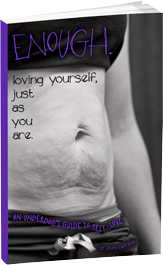My dad used to tell me, “You have two ears and one mouth, use them in that proportion.” I would always roll my eyes and get irritated when he pulled out that little gem, usually because he’d slap it on me when I was mid-sentence (and probably not doing a very good job listening). It was a gem, though, and as much as it pains me to tell him “FINE, YOU WERE RIGHT,” he was totally right.
Listening is VITAL.
And not just “hearing.” Hearing is a passive thing. LISTENING is something else entirely.
The third aspect of Active Listening is understanding what the speaker is saying, both what they are actually saying and what they are meaning to say (because those two things are often different).
For example. [You had to see this coming. The best way to learn is to hear a story about how someone else screwed it up, and as luck would have it I am a FIELD EXPERT in “screw up.” So here ya go.]
I really, really don’t like the word “comfortable.”
In my mind, “comfortable” means complacent. And indifferent, and lazy. Comfortable is what you get when you’re kicked back on the couch in your sweats, legs tangled up in a blanket, binge-watching The Office on Netflix, a bag of chips on your chest, eating Ben and Jerry’s ice cream straight out of the tub.
(Actually, REALLY comfortable is when you stick the whole pint of ice cream in warm water for ten seconds to loosen it from the container, grab a wooden spoon out of the utensil caddy, push the spoon down into the middle of the ice cream, and pop the whole thing out of the tub like a giant ice cream bar. GOOD STUFF. Lick fast, though, it melts quick.)
[I may or may not have done what I just said, more than one time. Pleading the Fifth.]
To me, comfortable is what you are when you’ve stopped caring. Comfortable isn’t just a state of mind or stable emotion, it’s “who gives a fuck.” It’s LACK of caring. It’s LACK of emotion, and lack of thought.
I really don’t like that word.
The Mister likes it a lot.
Some of our biggest, ugliest, hairiest arguments have been caused by the use of that word. ANGRY FIGHTING. Yelling, crying, more yelling.
The Mister: “It’ll be great to get through this _____ [fill in that blank with crazy current situation]. We can settle down and be comfortable.”
Me: “??!!!!?! UMNO, WE WILL NEVER BE COMFORTABLE. Comfortable is quitting. If that’s what you want, we should quit right now. OMG ARE WE BREAKING UP?!”
The Mister: “……um… Comfortable is the GOAL. Right? We should ALL want to be comfortable.”
Aaaaand ANGRY.
And seriously, for every one of those fights we almost broke up like sixty-three times. “STOP USING THE WORD COMFORTABLE, WHY DO YOU WANT TO STOP CARING.”
At the risk of painting a picture of myself that’s borderline psycho, I share this story to illustrate a point.
I am not always a good listener.
(And also I have baggage, but that’s a different story for another time.)
(Okay, being honest. It’s about sixtybajillion stories, and there isn’t enough time in the world. But we’ll keep trying.)
We’ve all been there. At least one time we’ve been in a conversation that starts to turn south, then with very little warning it derails completely. Can you think of a time that has happened to you? “We were talking just fine, and all of a sudden we were angry and fighting. What just happened?”
After several (several, several, and then some more) arguments with The Mister around the word “comfortable,” we finally got smart. The next time the word cropped up in conversation, just as I felt my hackles rise and the hair on the back of my neck catch fire, I stopped. I took a breath, and I asked.
“What do you mean when you say that word?”
We took a conversation tangent and talked about what that word meant to each of us. He felt it meant “all the things he’s dreamed about having,” being with someone that he didn’t have to TRY to understand, loving someone that loves him for exactly what he is, never feeling like the other shoe will drop. In his mind, “comfortable” means SECURE. And safe. It means he can pee with the door open and not be worried I’ll freak out, that if I find a love note written to him in not-my-handwriting I will ask questions before I lose my shit.
Comfortable, to him, means I accept his faults and embrace him as perfectly imperfect, and he holds me tight and treats me like a beautiful chaotic organized disaster.
In his eyes, and by his definition, “comfortable” is a pretty great thing. The Mister’s Comfortable is a place that most relationships never get to, because most relationships are mucked up and bogged down. I can see why he’d like to be there, once he explained.
I took some time to tell him what that word meant to ME. “Comfortable,” in my life, is what CAUSED the other shoe to drop. The feeling of comfort has always been THE precursor to every failed relationship, it’s the first milepost on the long road to heartbreak. It is all the things I said up above, plus ANGRY. And sad, and total emotional collapse.
Our conversation tangent eventually looped back around to the original discussion, and suddenly the thing we’d been originally talking about was a pleasure to discuss. My neck hair was no longer burning. I was able to LISTEN better, because I was no longer dealing with the emotions his words evoked. I heard what he had to say, and when he was done I felt really, really good. I felt GREAT, in fact. I felt as though I understood his point, and I knew 100% that his point was “this is how much I love you.”
Because we took time to define terms and understand each other, what would have previously been another argument was a conversation that Forged Depth. We both walked away from it feeling closer than ever.
As we learn about Active Listening, we must understand that TRULY LISTENING is not just taking in the words the other person is saying, it’s looking UNDER the words. And around them, and considering where the words come from. It is about finding the real, intended meaning of what is said, not just the on-paper-webster’s-dictionary version. Active listening is about Digging Deep and FEELING what is being said, as much as HEARING it.
Over time I have learned to ask lots of questions when someone is talking to me, particularly if they are saying things that cause me to be upset. Before I freak out to what they’re saying, I’ll just ask. “When you say ____, what do you mean by that?” Overreacting before we have a clear idea of what the speaker really means is a waste of time, energy, and focus. Instead, I try hard to understand completely before I react. IT IS HARD, and it does take practice, but I cannot tell you how many times I have saved HOURS of argument by “laying it out” ahead of time.
During a particularly heated discussion with a friend about her significant other, I said to her “I don’t trust him.” Ooooh, she came unhinged. She was furious, and upset. She replied to me, “Don’t say that. He’s not a liar.”
“…um… I didn’t say he was a liar.”
She was sure I had, though. No matter how I rephrased “I don’t trust him,” she heard me saying “he is a liar.” Every time. In her mind, “trust” meant “truth,” and for me to not trust meant he must be lying. In MY mind, not so much.
When you listen to people, be sure you’re hearing what they actually say, not what you think they mean. Listen to the words that are coming out of their mouths and the place they are coming FROM, not the words you’re putting in their mouths through misinterpretation. Then, when they say something that sets you on edge, LISTEN to their explanation. Let them explain what they meant. Let them define their terms. Often an adequate explanation will reverse misunderstanding.
As you develop a deep connection, you will have to define terms less and less frequently. With enough practice and enough time, you will create a connection that needs little to no explanation. You’ll learn that when the person you’re connecting with says a phrase in one tone, it means something completely different than in another. The more actively we listen, the more we learn, the more we connect, and the less we misinterpret.
How To Dig:
- When making eye contact with the one speaking, do it hard. For me, this means not just looking AT their eyes, but PAST them and BEHIND them. To empathize with the emotions behind the words, to see through their eyes and in their face what they’re experiencing as they speak, to feel what it is they feel. Although this seems hippy and strange and new-agey, it really does work. When you’re concentrating that hard on the things UNDER the speakers words, under and behind and around, you’re not concentrating on yourself. You’re just THERE, IN THEM, listening and actively participating in their story.
- For serious or emotional conversations, take some time to “define terms.” Just as a legal document includes a glossary of terms to define to the reader what specifically is meant, conversations should too. As you’re listening to someone talk, take note of words or phrases that make you react strongly. At the appropriate time (and without interrupting!), ask for clarification about those words. “What do you mean by that?”
- During particularly emotional or angry conversations, I even go so far as to ask straight out, “Are you trying to hurt me when you say ____?” DO NOT ASK IN AN ACCUSATORY WAY, but if you are really wondering at intention, ask. Drawing attention to the words being used and clarifying intention is HUGE. It provides accountability to the one talking, and it avoids unnecessary upset for the one listening.
Next time you are presented with an opportunity to listen, ask yourself these questions:
- What words need to be better clarified before I respond?
- What words do I react most strongly to? Is there one word in particular that evokes a strong response?
- Do I logically know what was intended by the use of those words?
The next time you have a conversation with someone and you feel your blood start to boil, take a breath, take a step back, and wait. THINK. It would be a shame to lose an opportunity to grow with someone, just because our intention and thoughts are lost in translation. Ask yourself these questions:
Keep Digging, Friends. Forge that Depth!!











Comments ( 0 )